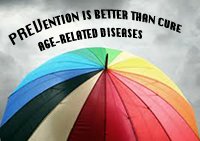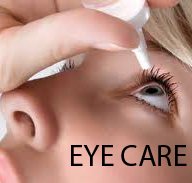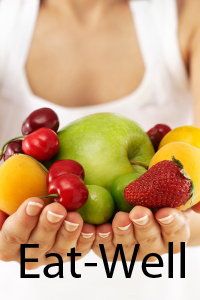|
Osteoporosis Prevention"Five Tips on Osteoporosis Prevention"by Mary Treacy age-well.org > Osteoporosis Prevention/Page 1 of 7 Osteoporosis - Table of Contents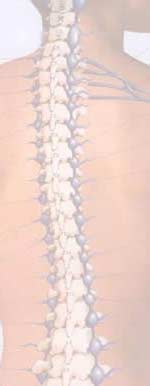
This Page Page 2 Page 3
Page 4 Page 5 Page 6 Page 7
What is Osteoporosis?Osteoporosis (porous bones) is a very serious disease where the bones become fragile and more likely to break. It can be potentially debilitating or even fatal. The disease develops silently, with the sufferer showing no symptoms, until the first fracture appears. Osteopenia means low bone density and can lead to Osteoporosis. If you have Osteopenia it is very important to take action to build up your bone density. This debilitating condition is often though of as a women’s disease, but this is because women rapidly lose bone density after the menopause, unless they take steps to prevent it. However, men can also develop the condition and the following information concerns everyone. Osteoporosis and Bone Density LossFew things are more important to your longevity than bone health. Your bones are living tissue that require adequate nutrition and exercise just as your muscular system does. Our skeleton consists of connecting bones that have a thick outer layer and a strong inner layer of supporting tissue, which resembles a honeycomb. Osteoporosis means part of this honeycomb becomes thin, which means it can no longer support the bone. Therefore, fractures become more common and can be caused by even minor accidents, such as a small bump. These fragility fractures, as they are called, can affect any part of the skeleton, but are more common in the spine, hip and wrist.
Age Makes Bones More Fragile Age Makes Bones More FragileAs we get older we become more likely to break our bones, because bone density decreases, leaving the bones less resistant and more fragile. According to some surveys fractures are the number one cause of death in people over 65. Hip fractures are especially dangerous and approximately 20% of people who break their hips will die within a year from related complications. We have stressed throughout this website that regular exercise and a balanced diet can help us avoid most of the problems associated with aging. This disease is no exception - unless we take counter-measures, bones become fragile, increasing the risk of fractures.
1. Do Weight-bearing Exercise Resistance exercises are also essential to improving bone density and you should do 20 to 30 minutes of such exercise at least three times a week. 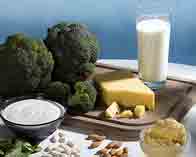
2. Get Enough Calcium If you are lactose intolerant, you can still get enough calcium through lots of vegetables, especially leafy greens, fruit, wholemeal bread, beans, nuts and Omega 3 fatty acids.
3. Improve Your Diet Understand that besides calcium, you need much, much more. For example, Vitamin D is essential to help your body absorb the calcium, but according to scientific studies it is also a vitamin which increases life expectancy. Fresh green leafy vegetables are the best source of vitamins D. Magnesium and Potassium are among the other nutrients which are important for bone health, and it is believed that Vitamin K can also play a role in guarding against osteoporosis. Eating a plant-based diet including raw fruit and vegetables, seeds and nuts is the best way of obtaining the nutrients you need for healthy bones. Visit the rest of age-well.org, especially the section on eating well - and also the in-depth articles on the above-mentioned vitamins and minerals in the A-Z of Vitamins and Minerals to make sure you are getting enough nutrients in your diet to prevent - not just osteoporosis - but Superfoods and theRaw Food Diet 4. Get Enough Sunlight However, exposing skin during the hours when the sun is at its highest especially the nearer one is to the equator, can cause skin damage and cancer? Avoid unprotected exposure for too long periods and avoid the sun from 11:00 until 15:00 hrs. You can get adequate vitamin D by exposing yourself to sunlight for at least half an hour per day - extending this if possible to two hours during the winter and on overcast days. This does not mean lying in the sun - just spending time out of doors soaking in the sun's rays.
4. Take Supplements if Necessary In order to maintain adequate vitamin D levels during the winter, especially if you are living in Northern climes, means you need four times the current recommended dose. The current recommended level of five micrograms (200 International Units) of vitamin D is seen by many as insufficient. It is recommended for those who might not be getting enough nutrients to take a multivitamin and mineral tablet a day. People at risk from osteoporosis and women after the menopause should also take vitamin D and calcium supplements, which often come together in one tablet. Ensuring that these supplements are of the highest possible quality is one of the best things you can do for your health. To protect bones, we recommend Bone-Protec as is one of the very few formulas on the market that contains the full spectrum of nutrients needed to build strong bones and ensure the best possible bio-availability. We suggest that you check out this product and other information on anti-aging products by clicking here. This site contains some interesting information on this subject as well as being a reputable source of dietary supplements. Besides the possibility of ordering Bone-Protec you will find a wide range of anti-aging products which contain no harmful agents. Continue to page two of the Age-well Mini Site on Osteoporosis:
ResourcesCure-Back-Pain.Org has a huge number of articles on many potential sources of dorsopathy including a dedicated section on osteoporosis. Age-well is also happy to partner with Amazon in bringing you a hand-picked selection of supplements which you can check out below. You can buy them through Amazon's secure server for your piece of mind.
age-well.org > Osteoporosis Prevention/Page 1 of 7 |
Quotes about Osteoporosis
“As health minister I came in contact with people affected from osteoporosis. It’s not sufficient to listen to them but to do more. We have to make a change, so I urge policy makers to take action on osteoporosis! It’s really important to eat a balanced diet and exercise. Move it or lose it!”
Rita Süssmuth, leading German politician
“Never in my wildest dreams did I think I would be a candidate for osteoporosis. I know now, I should have paid more attention to my personal risk factors; I should have taken better care of my bones. You know what? So should you. So come on, Beat the Break, take responsibility for your bones. Just talk to your doctor about osteoporosis. ”Joan Rivers, comedienne
“When I found out that I had osteoporosis, I was pretty shocked. I thought it was, you know, for old ladies basically…but I got diagnosed when I was 37. Osteoporosis has affected my life in many ways. Mainly I’m a lot more aware of my health now. I’m aware of just taking it a little more easy with physical activities, I exercise regularly, I gave up smoking… in fact, I probably feel better now than I have ever felt!”
Kirk Pengilly has been with the band INXS since its founding in 1977
“Osteoporosis is a disease in which the bones become fragile and fracture easily. It’s like a football team in which the defenders become weakened, and opponents can score easily. That’s a catastrophe. My advice to young girls and boys is to play sports and exercise. “Move it or Lose it”.”
Gregory Coupet, footballer, French national team
"Osteoporosis is a major public health problem with serious medical and economic impact. While there have been many advances in the management of osteoporosis over the past 10 years, important care gaps still exist."”John A. Kanis, IOF President






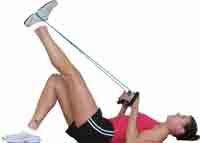 Prevention is possible in most cases and the ealier you make the necessary lifestyle changes advised here; the less likely you are of developing the condition.
Prevention is possible in most cases and the ealier you make the necessary lifestyle changes advised here; the less likely you are of developing the condition.
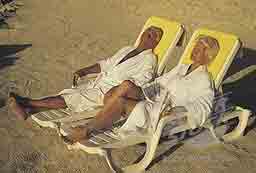 The sun has long been considered as a source of vitality and its healing and rebalancing powers have been used to treat a variety of complaints from tuberculosis to depression and skin disorders. Besides being found in different foodstuff, Vitamin D is also created in the body when the skin absorbs the sun's ultraviolet rays, which is why it is sometimes called the "sunshine" vitamin.
The sun has long been considered as a source of vitality and its healing and rebalancing powers have been used to treat a variety of complaints from tuberculosis to depression and skin disorders. Besides being found in different foodstuff, Vitamin D is also created in the body when the skin absorbs the sun's ultraviolet rays, which is why it is sometimes called the "sunshine" vitamin.
 Author of this Section,
Author of this Section, 